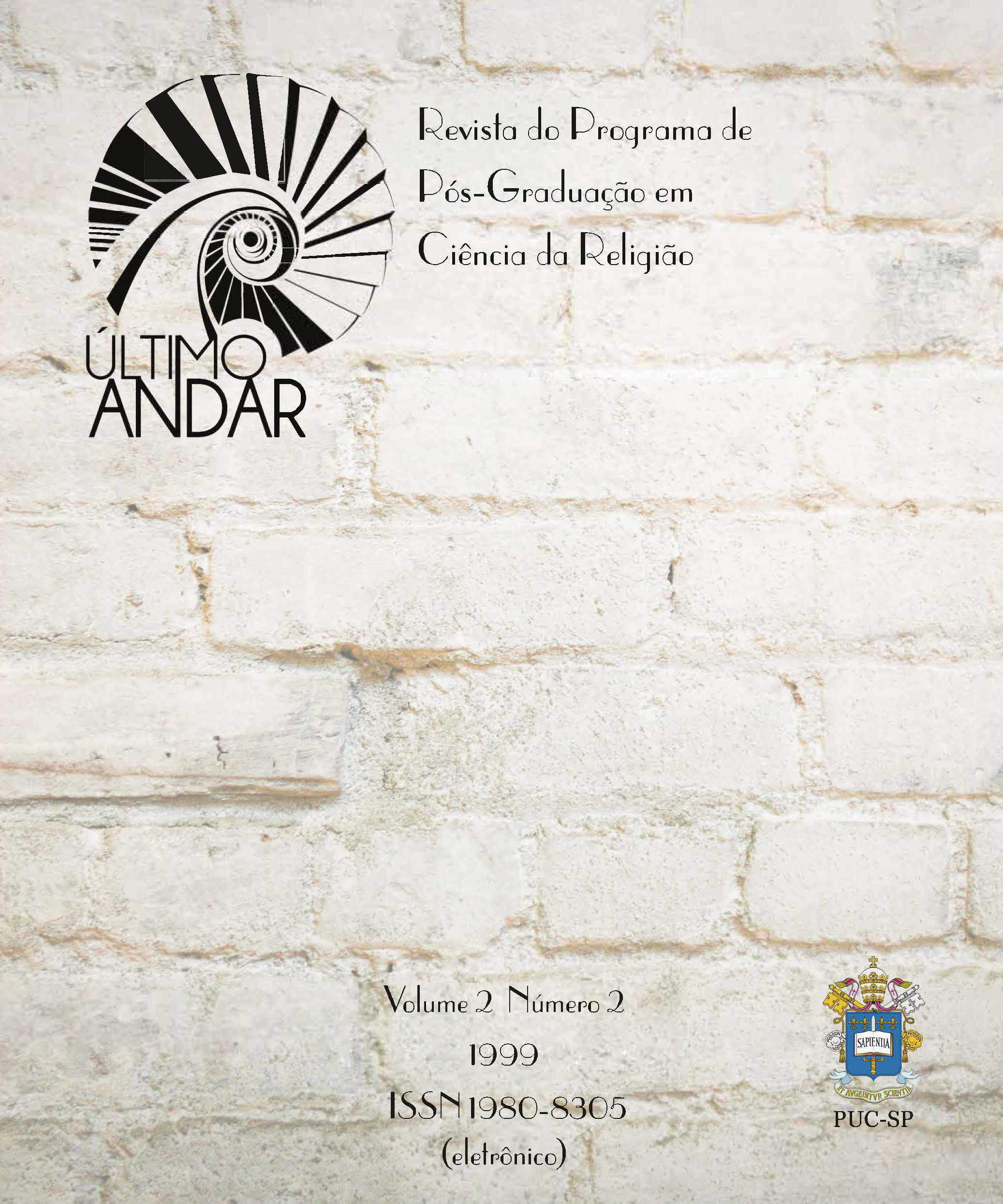CRÍTICA FEMINISTA À SOCIOLOGIA DA RELIGIÃO DE MAX WEBER
Palabras clave:
Sociologia da Religião, feminismoResumen
A crítica feminista à Sociologia da Religião de Weber, traçada por Kandal, Bolong e Erickson, e corroborada por testemunhas de seu tempo como Otto Gross e Troeltsch, coloca em evidência a tensão existente na Vida e obra de Weber entre racionalidade, grandeza, masculino, mundo público, religião ética, por um lado, e Eros, magia, religiões estáticas, feminino e cotidiano, por outro. O feminismo das autoras (Roslin W. Bolong e Victoria L. Erickson) considera a possibilidade de uma nova dinâmica, capaz de integrar as diferentes dimensões humanas, que permita às pessoas encontrar forças para resistir e superar as estruturas que as dominam.
Citas
BOLOGH, Roslin W. Love or Greatness. Max Weber and Masculine Thinking — A Feminist Inquiry. London: Unwin Hyman, 1990.
ERICKSON, Victoria Lee. Onde o silêncio fala. Feminismo, teoria social e religião. São Paulo: Paulinas, 1998.
KANDAL, Terry R. The Women Question in Classical Sociological Theory. Gainsville: Flórida International University Press, 1989.
SCHWENTKER, Wolfgang. A paixão como um modo de vida: Max Weber, o círculo de Otto Gross e o erotismo. Mimeo, palestra proferida em 1996.
WEBER, Max. Economia y sociedad. Esbozo de sociologia comprensiva. México: Fondo de Cultura Económica, 1984.
Descargas
Publicado
Cómo citar
Número
Sección
Licencia
Derechos de autor 2024 Martina González, Yury Puello Orozco

Esta obra está bajo una licencia internacional Creative Commons Atribución-NoComercial 4.0.
Los autores que publican en esta revista aceptan los siguientes términos:
Los autores conservan los derechos de autor y otorgan a la revista el derecho de primera publicación, con el trabajo simultáneamente licenciado bajo la Licencia de Atribución Creative Commons que permite compartir el trabajo con reconocimiento de autoría y publicación inicial en esta revista.
Los autores están autorizados a asumir contratos adicionales por separado, para la distribución no exclusiva de la versión del trabajo publicado en esta revista (por ejemplo, para publicar en un repositorio institucional o como un capítulo de libro), con reconocimiento de autoría y publicación inicial en esta revista.
Se permite y se alienta a los autores a publicar y distribuir su trabajo en línea (por ejemplo, en repositorios institucionales o en su página personal) en cualquier momento antes o durante el proceso editorial, ya que esto puede generar cambios productivos, así como aumentar el impacto y la cita del trabajo publicado.


